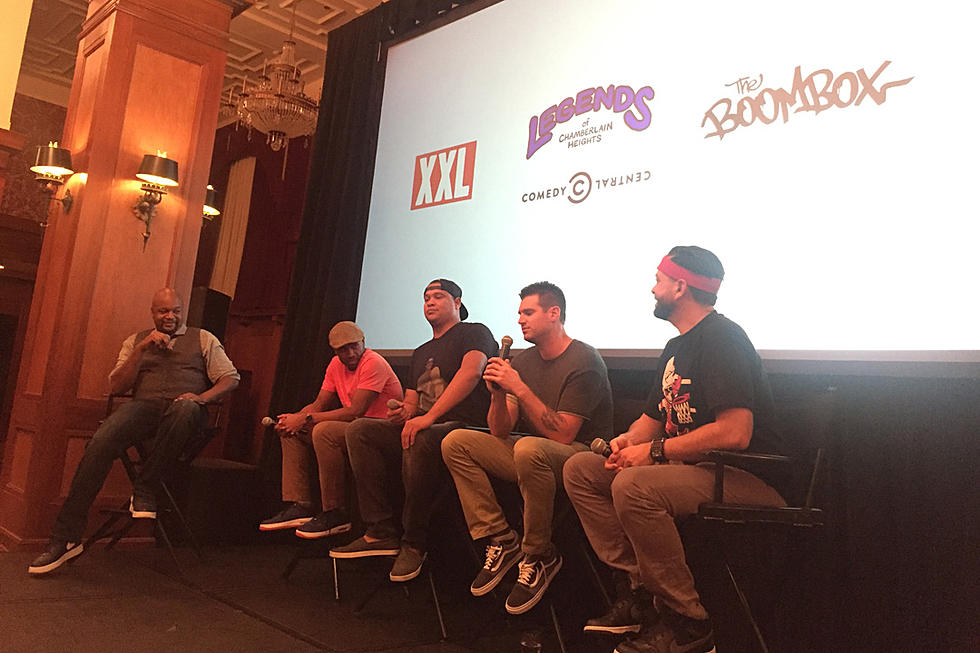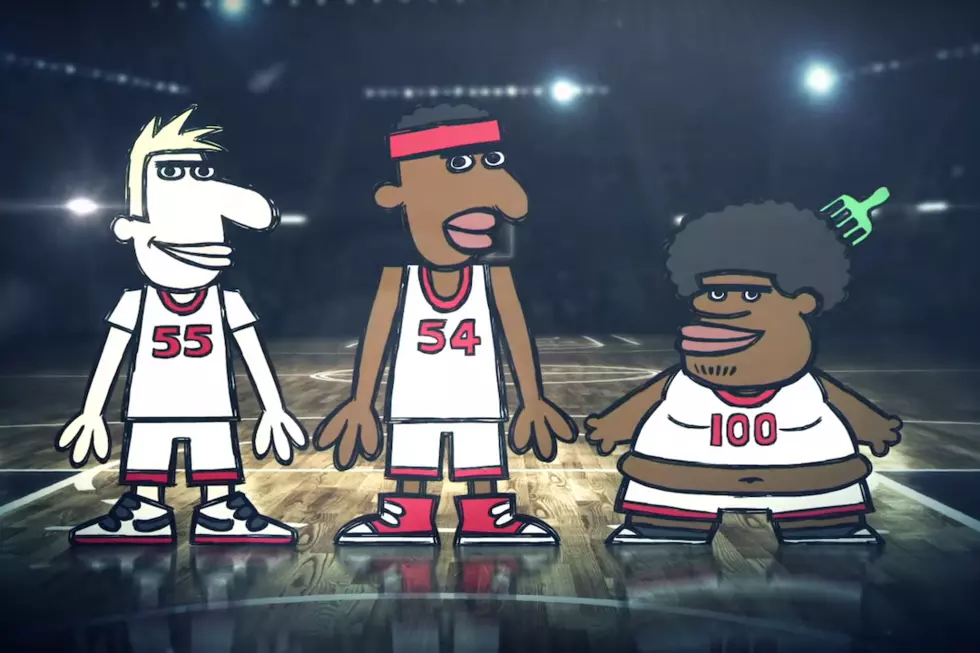
I Believed in Me: 5 Rappers Who Spoke Greatness Into Existence
Legends of Chamberlain Heights follows three hapless benchwarmers who believe in their own abilities above all else--even when it's obvious they have very little ability at all.
Milk, Jamal and Grover are not unlike rappers. Your favorite rappers have to have an almost-singular belief in their abilities to make it to hip-hop's elite. You have to believe in yourself as an emcee to be able to stand toe-to-toe with other rhymers--not to mention having to navigate the music industry and all that comes with it.
But there are still special cases in hip-hop; those guys who seemed to believe in themselves wholeheartedly even after high-profile setbacks should have muted their arrogance. Not these guys--these are the rappers who never stopped believing.
These are 5 rappers who spoke their greatness into existence.
- Jamie McCarthy, Getty Images
Jamie McCarthy, Getty Images 1Jay Z
He'd been trying to get a rap career off the ground since the late 80s and when he finally dropped his debut album Reasonable Doubt in 1996, it was acclaimed but barely registered commercially. A year later, after the murder of his friend, the Notorious B.I.G., Jay brashly dropped a song called "The City Is Mine"--anointing himself the "King of New York." The move drew criticism, but proved prophetic; it would take him a few years, but by the time Jay Z released The Blueprint in 2001, the city truly was his. And so was hip-hop.
- Larry Busacca, Getty Images
Larry Busacca, Getty Images 2Kanye West
He'd ghostproduced for hit albums as far back as Jermaine Dupri's Life in 1492, but Kanye's career climb was slow. Even after he became hip-hop's most in-demand producer after his work on Jay Z's The Blueprint, Kanye wasn't exactly encouraged to pursue a career as an artist. The songs on his first album, 2004s The College Dropout, revealed that he was both ambitious and bitter about the dismissals. But he was also confident in his own abilities. And with ...Dropout spawning several hit singles, Ye soon became one of the biggest stars in music.
- Ethan Miller, Getty Images
Ethan Miller, Getty Images 3Lil Wayne
In the late 90s, Weezy was the youngest star on Cash Money Records. Mainstays like Juvenile and B.G. had prepped the teenage star for a breakthrough, but some still considered him a kiddie rap "bling bling" novelty. But Wayne kept boasting his way through Hot Boyz and solo hits until the collective splintered and he was forced to go it alone. Wayne responded by elevating his art and his skill, dropping Tha Carter II in 2004 and proclaiming his greatness as the sole survivor of Cash Money Records. It paid off; Weezy would suddenly be catapulted to the forefront of music and he'd take Cash Money with him--setting the stage for the emergence of Young Money with Drake and Nicki Minaj.
- Brad Barket, Getty Images
Brad Barket, Getty Images 4Jeezy
Young Jeezy had dropped two independent albums in the early 2000s to little fanfare, but the charismatic Georgia rapper had been cultivating a persona that was resonating with fans. He would join Bad Boy Records' Boyz n the Hood and the group released it's debut in 2005; with Jeezy's brag-filled, hustle-friendly rhymes front-and-center. Shortly thereafter, Jeezy dropped his classic major label debut, Let's Get It: Thug Motivation 101, a smash hit that established Jeezy as one of ATL's most revered hip-hop stars.
- Jamie McCarthy/Getty Images
Jamie McCarthy/Getty Images 5T.I.
T.I. seemed destined for greatness. He was primed to be another Atlanta breakout star following OutKast and Ludacris, and the man born Clifford Harris had the audacity to christen himself "King of the South" before he ever even had a hit song to his name. Tip dropped I'm Serious, his major label debut, in October 2001 and the album failed commercially. Some scoffed at young T.I.'s perceived arrogance, but the Bankhead legend revamped his approach and switched labels (he'd left Arista for a joint venture deal at Atlantic) and suddenly he had a platinum album and four hit singles.
More From TheBoombox









